Many years ago I was dating a handsome Punjabi who lived in Milan, and we took a trip to Paris. (That sentence makes me seem way more interesting than I actually am.) While leaving our hotel one morning, he offered to carry my wallet. “Thanks,” I said, “but these pants have pockets. I carry my own money. I’m not an Indian woman.” He, being a human with feelings, rightfully gave me the silent treatment for the rest of the morning. I, being an idiot, couldn’t figure out what was wrong and had to pointedly ask over lunch.
My comment was referring to my fruitless quest to find a salwar kameez with pockets during my semester in Jaipur back in 2004. I spent four months in India looking for a place to put my cash. I was trying to make a joke. I failed. To my friend, it wasn’t just not funny. It was insulting to him, to his mom, his sister, and every Indian woman, so about 500,000,000 people. Not my best moment.
I share this memory in defense of Trevor Noah, the South African comedian who will be taking over for Jon Stewart on the Daily Show. He’s gotten a lot criticism for some unfunny and unoriginal tweets about people who are overweight and Jewish. I’m still a Trevor Noah fan. Good people can be insensitive and thoughtless. These people learn from their offenses, and these offenses can be pretty glaring when moving between cultures.
Different cultures have different prejudices and sensitivities. I’ve not been to South Africa but I wonder if they have the same level of sensitivity to weight related jokes that exists (only recently) in the US. Brazil doesn’t. I don’t believe any of Noah’s tweets would raise an eyebrow in Brazil.
The truth is I’ve never been to a country that was not rampant with prejudices. Every culture has groups of people that it marginalizes, fears, or has very little contact with and thus, no sensitivity to. To make my point, here’s a global tour of prejudices I’ve encountered around the world. And since people can be the worst with all our many, many prejudices, I’ll just focus on race for now.
I once spent a summer in rural Croatia. It is the whitest place have ever been. It’s like a town populated exclusively by the audience of the Country Music Awards, except with a better grasp of geography. When I mentioned to my homestay sister that it was weird for me to be in a place with no people of any color except white, she cheerfully informed me, “Oh no, there’s one African. He plays for our soccer team. They brought him here because those people are really good at soccer.” I was also told that throwing bananas during games is just a joke. It’s all in good fun.
Morocco was the first place I discovered the product Fair and Lovely. After repeated applications, this cream will lighten the complexion of any young woman and save her from the bad husband and unhappy life resulting from dark skin. I was so horrified by it, I couldn’t bring myself to buy it as a joke. In Morocco I also learned about the two Africas. A fellow student in my program had shown me how to wrap my hair up in a scarf, and I sported the look almost daily for awhile. Eventually, my homestay mom said I should try a different style because my style was how “African women” wrapped their hair. I was momentarily confused because Morocco is in Africa, but of course she meant Sub-Saharan Africa. Black Africa. Not Arab Africa. Even in Africa you can’t be black.
India, unfortunately, also had Fair and Lovely and it was running a truly spectacular commercial. A girl, in her early teens, is on the couch watching a cricket match, pretending to call the plays into a hairbrush. Her mom appears and lovingly embraces her daughter while handing her a tube of Fair and Lovely. The girl diligently applies the cream to her face before bed. Leap to the future and a young woman with skin several shades lighter is taking her place in the announcer’s booth at a cricket match. She’s smiling, loving life, and so thankful her lightened skin has helped her get a job as a radio announcer.
White skin is also a prized commodity in Brazil. Well maybe not “white” skin, not with all the beaches and lack of clothing, but blond hair and blue eyes are prized possessions. Almost every Brazilian who sees my daughter for the first exclaims over her blue eyes. The teachers and staff at school affectionately call her “Blondie”. The staff of the preschool is almost entirely dark skinned and the students are almost entirely white.
Brazil does have very strict hate speech laws which make racist remarks a crime, and I think they do limit the amount of explicit comments directed at Afro-Brazilians. The law does not, however, seem to protect gays or anyone from the continent of Asia. If there’s a gay joke your local PC police are holding you back from, come to Vitoria, Brazil. You’ll get a hearty laugh because here men know there is nothing worse than being gay. Do you think pulling down the corners of your eyes when talking about Japan is absolutely hilarious? So do a lot of people in Brazil. Here’s a commercial for the fast food chain China in Box. Please, watch it and tell me in the comments if your mouth dropped open too.
I used to teach high school here in Vitoria, and I’ve had to stop my classes more than once to say, “Never, never do that thing with your eyes in my class.” Some students then helpfully explain that the gesture is not racist in Brazil, and Americans are too sensitive about race. I’ve heard the sentiment many times. “Americans are too sensitive about race.” Also, “Americans have a real problem with racism.” Americans are very sensitive racists.
The truth is we’re all a little bit racist or homophobic or Islamophobic. Every person has prejudices and every culture has groups it doesn’t encourage empathy with. My students here have had little to no contact with anyone from anywhere in Asia. The jokes they make reflect this. I think the solution is asking the students, asking ourselves, to consider the other group’s perspective. In short, empathy.
I know, I know. Actively respecting other people’s feelings requires thinking and we’re all so busy. It may also require us to apologize when we fail to do that thinking and offend someone, and apologizing is the worst! It implies we’re not right all the time! I also understand the temptation to blame whoever for being overly sensitive. Then we don’t have to feel guilty for hurting someone. I hate feeling guilty. It’s such a downer. Speaking of downers, we are all going to have to drop some jokes about Latinos, women, gays, foreigners, the disabled, the indigent, Catholics, Muslims…oh my god, is it even possible to be funny while respecting others? Yes, it is.
And I think Trevor Noah will learn from his mistake. I learned from mine that morning in Paris and the many more I’ve made since. Empathy requires more energy than indifference, but the result, a kinder world for all, seems worth the effort.

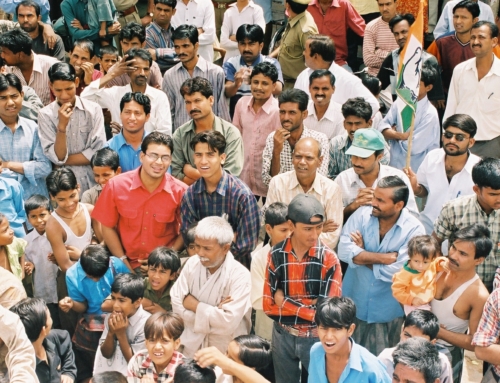
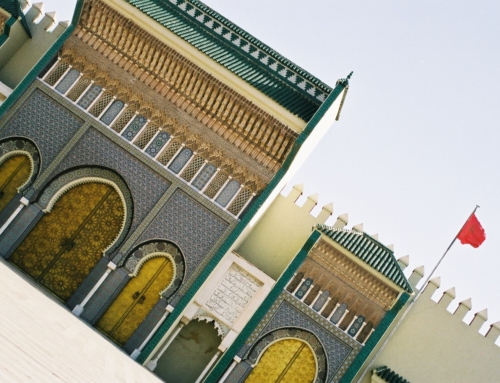
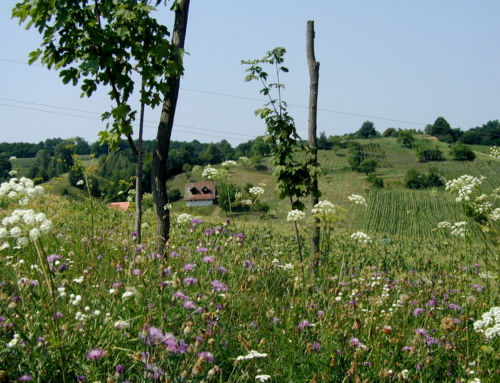
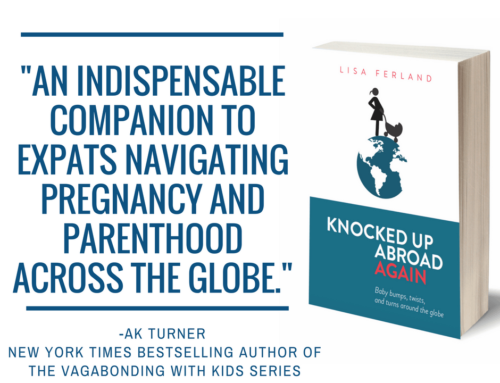
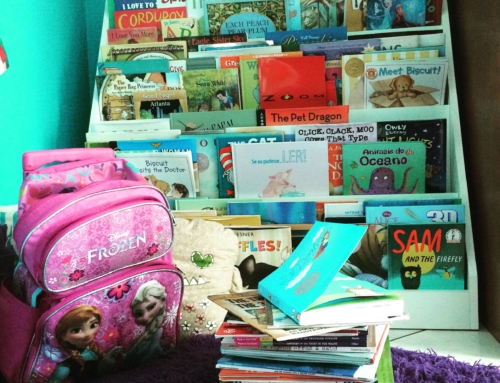

One of your best, loved this one.
Thank you for writing this. I’m Filipino-American and do experience prejudices here in Brazil. I don’t think they’re meant to vicious or hurtful sometimes, but the assumptions and preference for white skin here is so prevalent that I don’t think Brazilians realize that they, in their actions (maybe inadvertently), devalue people with darker skin. Someone even pulled their eyes while talking to me to tell how surprising it was to find someone with small eyes from the US! I explained to her to never ever ever do that to anyone of Asian descent, especially Americans… anyway, good read.
Hi Roaen, I meant to reply to your comment ages ago. I’m sorry you’ve personally faced prejudice here in Brazil, but honestly I’m not surprised. I’m constantly shocked by comments and reactions from people in Vitoria and I’m reminded just how provincial the city is for being a state capital. Even from highly-educated, well-traveled people. A friend proudly telling me how she refused a helicopter tour over the Grand Canyon because a crew from Al-Jazheera was going to be on the same helicopter or someone being completely baffled as to how a woman could be from the US and Spanish speaking. I agree with you, that it’s not malicious. It’s a result of lack of exposure to a variety of people, cultures, and religions. I think sensitivities will change as Brazil becomes a more global player and Brazilians have more contact with people from all over the world in their daily lives. Sao Paulo and Rio are already very diverse in terms of race, religion and sexuality and I felt both cities are far more open to diversity than here in Vitoria. But that’s all little comfort for minorities living in Brazil today. I’m so sorry you have to deal with all the toxicity in the here and now.
You might be surprised about country music fans — and singers. There even was an African American country artist on last season’s American Idol. Plus:
http://www.theguardian.com/music/2015/jan/27/mickey-guyton-black-country-music-better-than-you-left-me
http://www.theguardian.com/music/2006/jul/16/folk
Would the country music fans surprise me in terms of diversity or knowledge of geography? : )
Ok, ok. I admit to having almost no contact with country music since I left Atlanta in 2001 and I haven’t watched American Idol since Melinda Doolittle didn’t win. I’m still fuming about that.